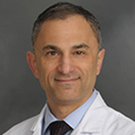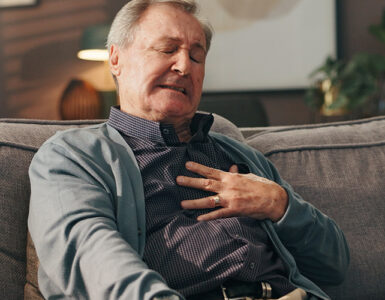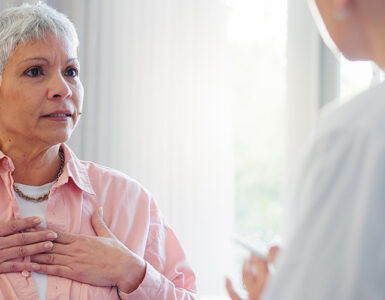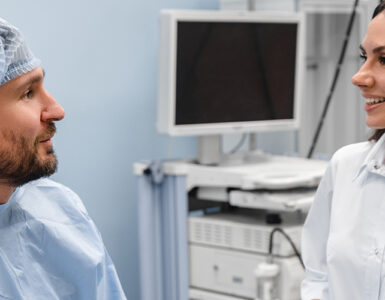During the holiday season, many indulge in celebrations that often involve increased alcohol consumption, leading to a temporary but concerning health condition known as holiday heart syndrome (HHS).
This syndrome, sometimes referred to as alcohol-induced atrial arrhythmias or “holiday heart disease,” describes the onset of heart arrhythmias, typically atrial fibrillation, which can be triggered by binge drinking during holiday celebrations or weekends.
What is Holiday Heart Syndrome?
Holiday heart syndrome is a health condition characterized by an irregular heartbeat or arrhythmia that can occur after episodes of heavy drinking.
A heart arrhythmia refers to any irregularity in the heartbeat’s rhythm, where the heart may beat too fast, too slow or with an erratic pattern, disrupting the normal flow of blood throughout the body.
Those experiencing HHS may notice palpitations, a feeling as if the heart is racing or fluttering, or they may feel unusually fatigued. Some may also experience shortness of breath, chest pain or dizziness.
HHS can occur even in those without a history of heart disease and is an example of the direct impact that lifestyle choices can have on heart rhythm and cardiovascular health. It can also affect people who rarely or never consume alcohol but engage in binge drinking on occasion, such as during weekends or vacations.
What Does Holiday Heart Syndrome Feel Like?
Holiday heart syndrome symptoms typically include:
- Palpitations: The feeling of having a fast-beating, fluttering or pounding heart
- Shortness of breath: Difficulty breathing, especially during physical activities or even at rest
- Chest pain: Discomfort or pain in the chest, which can be alarming, although it might not always be severe
- Fatigue: Feeling unusually tired or experiencing unexplained weakness
- Dizziness: Experiencing lightheadedness or a feeling of being about to faint
These symptoms can be alarming, often prompting emergency room visits over the holidays.
How Long Does Holiday Heart Syndrome Last?
Typically, symptoms of holiday heart syndrome last from a few hours to several days. Symptoms usually resolve once normal routines are resumed and alcohol consumption is stopped or moderated. If the symptoms do not resolve within 24 hours, patients should seek medical attention.
Causes and Risk Factors
The primary catalyst for HHS is often binge drinking. Alcohol can lead to dehydration, electrolyte imbalances and direct toxic effects on the heart muscle, all of which can disrupt the normal electrical activity of the heart and lead to arrhythmias.
Surveys show about 53 percent of Americans report consuming alcohol on a regular basis, and 44 percent of drinkers engage in binge drinking, defined as consuming five or more standard drinks during a single occasion. Adults are most likely to drink alcohol excessively during long weekends, holidays and vacations, hence the name “holiday heart syndrome.”
Aside from alcohol, other stressors can contribute to this condition, too, such as overeating, lack of sleep and emotional stress, which are also common during holidays.
Holiday Heart Syndrome Treatment
Treatment for holiday heart syndrome primarily involves lifestyle adjustments to support heart function and prevent the syndrome from returning. However, in cases where the heart arrhythmia persists, medical intervention may be required.
Depending on the severity of the condition and the patient’s medical history, treatments can include medication to control the heart rate or rhythm, and in some cases, emergency treatments like cardioversion, where the heart is shocked back into a normal rhythm.
Prevention Tips
Preventing HHS is crucial, not only to keep the holiday celebrations safe but also to protect against long-term heart damage and issues like high blood pressure. For those with existing heart conditions or risk factors like high blood pressure or heart failure, being particularly mindful of holiday indulgences is important.
To help prevent the development of holiday heart syndrome, focus on:
- Moderate alcohol intake (no more than two drinks during a single occasion)
- Maintaining a balanced diet
- Staying hydrated
- Getting adequate rest
- Managing stress effectively during the busy holiday season
This holiday season, as you enjoy the festivities with family and friends, keep in mind that moderation is key to not only enjoying the moment but also ensuring your health remains a priority. And be sure to visit or call your doctor right away for any signs and symptoms that may suggest a heart condition. When in doubt, go to the emergency room or call 911 and get it checked out. Don’t delay getting help, even if it’s a holiday.
For more information, visit heart.stonybrookmedicine.edu. For appointments with a cardiac specialist, call (631) 44-HEART (444-3278).
Join six Stony Brook experts to discuss some of the ways you can work to have a happy and healthy holiday season.












